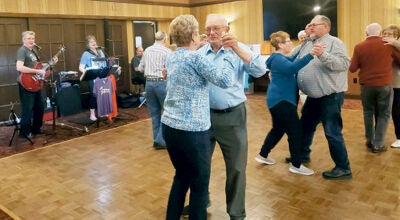They vote mind or district
Published 7:27 pm Sunday, April 18, 2010
Citizens are often puzzled — if not outraged — by how their legislative representatives vote; it helps to understand the decisions they must make in voting on a bill. Some vote their minds and some their districts.
I suggest neither is valid as an exclusive procedure, because both have validity. A wise and effective politician understands how to lead and how to follow constituents at the same time. The legislator follows constituents’ wishes as their representative, but also leads them to what understanding and good judgment indicates should be their wishes.
Those who vote their minds feel they have the knowledge and understanding not possible for their constituents and, so, vote as they judge best. If a legislative representative (from village board to the congress) is at all intellectually competent and politically experienced, this will be largely the fact. The mass of facts and complexity of issues is well beyond the ability of all but a few citizens even to recognize. When I look closely at all legislators need to know (without even considering what they also need to understand), I am scared out of any thought I might ever have had about running for public office.
I respect legislative representatives for their achievements and am grateful for their industry.
Other legislators tend to perceive themselves simply as compliant representatives of their constituents. They vote the way they think the people who put them in office would vote if they all sat in the legislator’s seat. They consider their own personal, private judgment to be irrelevant to the task. They vote in the legislature on behalf of the district’s voters—on behalf, not instead of.
I find it curious that most legislators self-describe as balancing these perspectives, i.e., they both respect constituents’ wishes and use their own good judgment. On the other hand, often their fellow legislators listen to their arguments and count their votes and put them on one side or the other, i.e., characteristically voting their minds or characteristically voting their districts. More than once when I questioned the wisdom of a legislator, a colleague observed dismissively, “Oh, he’s smarter than that. He just votes his district.”
I suggest the rule of proportionality ought to be at play in this. The stronger “Sen. John Smith” feels about an issue, the more reasonable is it to rely on his own judgment (to include advice of his staff). The stronger wishes are expressed by his constituents, the more reasonable is it to defer to their wishes. When both perspectives are strongly agreed, there is no question. When one is strong and the other week, the choice is evident. Most legislators have seldom experienced perspectives to be so simple.
Those we elect to office must listen carefully to us, but we must actually speak to our representatives. They must hear what we are saying and not just listen for confirmation of their own opinion. Citizens are most helpful in factoring into our demands the good of the whole and not merely what is of personal advantage.
Lobbyists never speak for the public, but always exclusively for the special interests they represent. Lobbyists are not usually corrupt, just narrowly focused. They can be of great help, to legislators by presenting facts and considerations necessary for legislative decisions.
It is only that legislators must ferret out what is helpful and what is self-serving.
The most confusing and deceptive lobbying people are those private citizens who present themselves as being for the public good but are actually special pleading.
Another tension for legislators is between individual judgment and the party position.
Any legislator finds it difficult to operate at state and national level without the resources of a political party, and it is no small thing to break with the party. But, sometimes, he or she needs to make this decision.
Occasionally, legislators need to put their political careers on the line by casting a widely unpopular vote (when felt to be morally or legally right) and then await reaction at the next election.
Being an effective legislator (again from village board to the congress) is hazardous work. It requires broad knowledge, profound wisdom, skillful communication, political adroitness, remarkable patience, incredible persistence—and a measure of luck.
For them to be effective, it requires from us patience, understanding, trust—and a measure of forgiveness.



